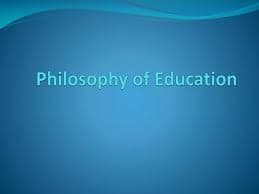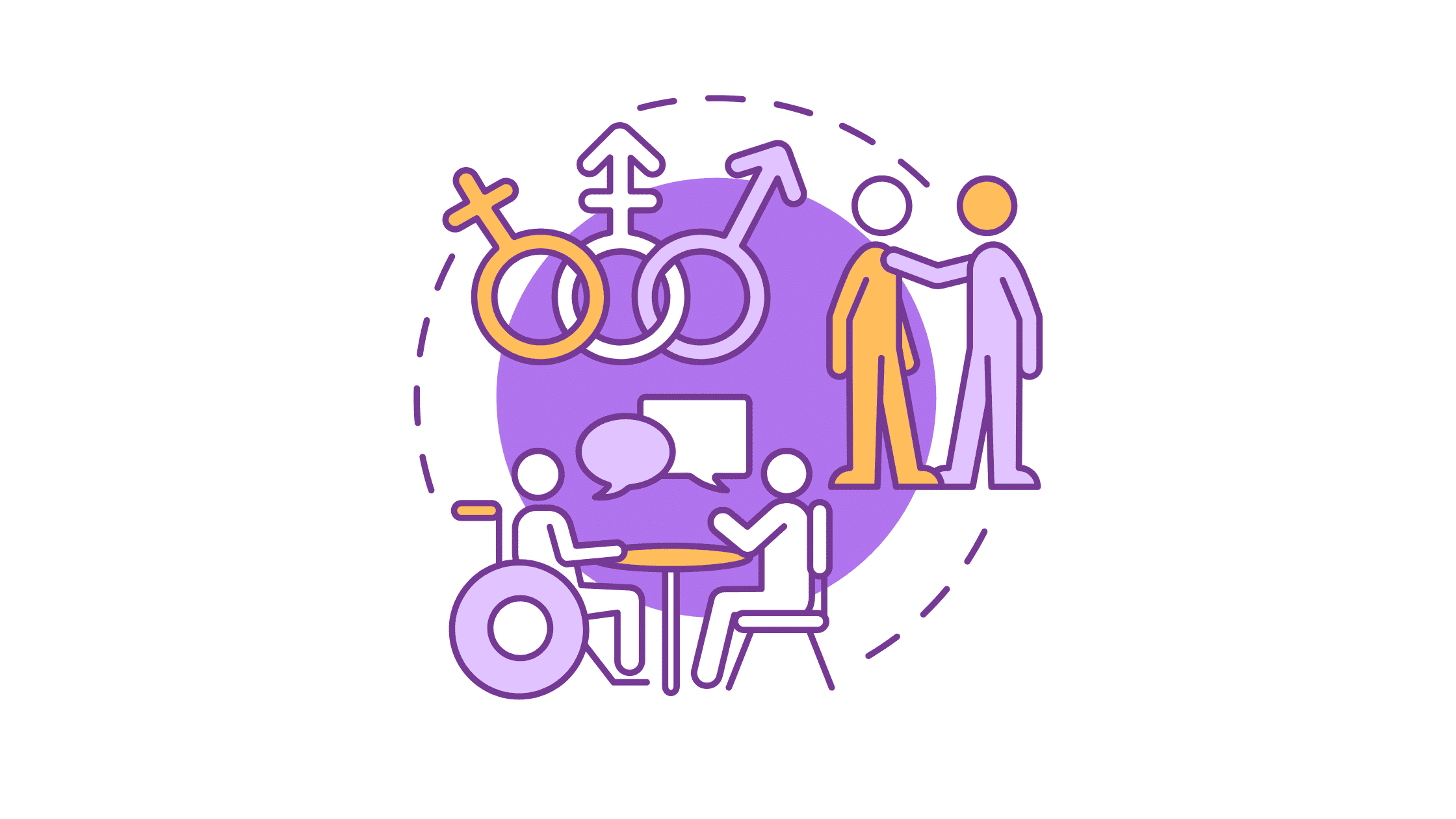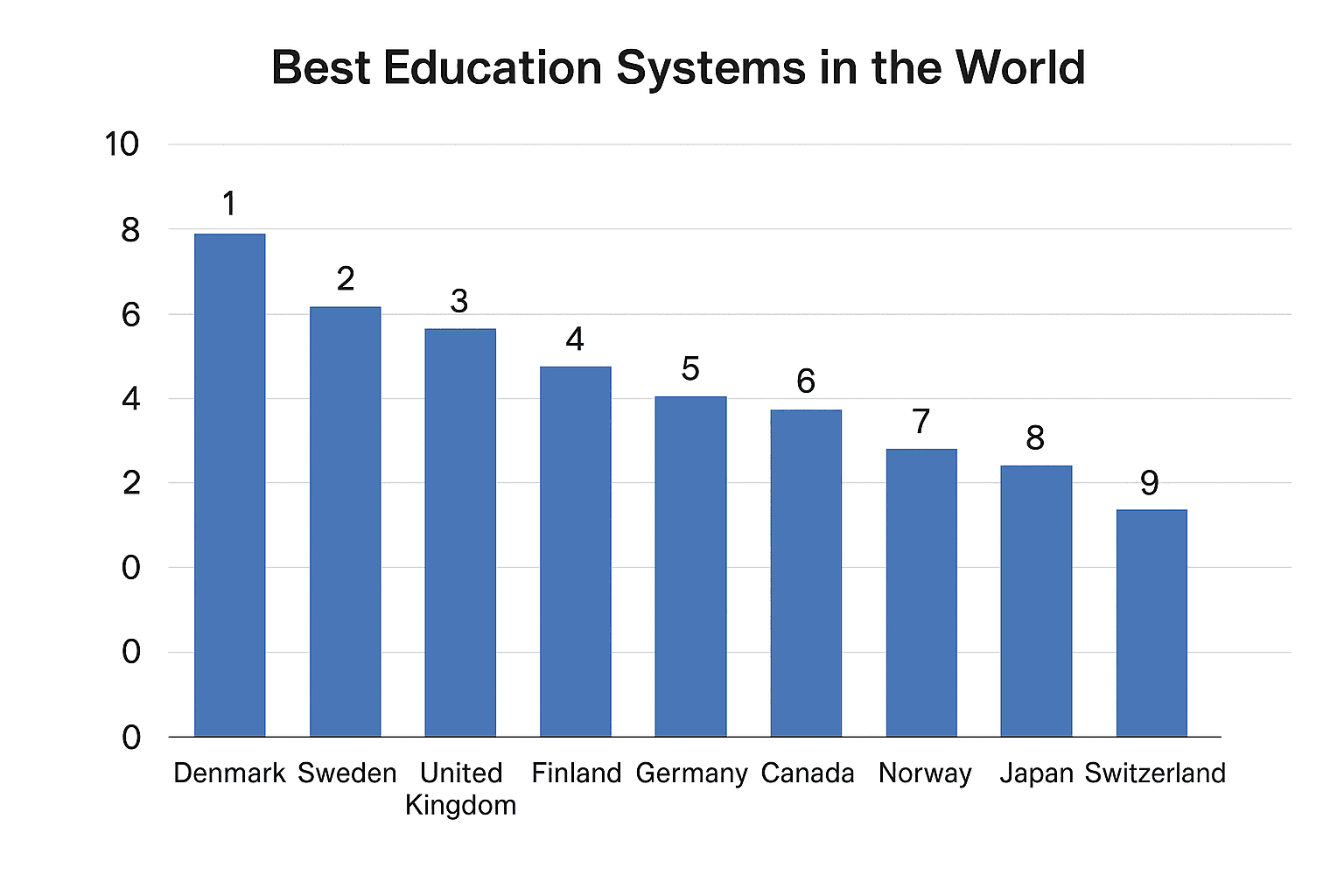
What is a Philosophy of Education? Complete Guide to Educational Philosophies in 2026
What is a Philosophy of Education? Complete Guide to Educational Philosophies in 2026
Every educator, whether consciously or unconsciously, operates from a philosophical framework that shapes how they view learning, design curriculum, interact with students, and measure success. But what exactly is a philosophy of education, and why does it matter? From John Dewey's progressive vision of learning by doing to Maria Montessori's child-centered approach, educational philosophies provide the theoretical foundation that transforms teaching from mere information transmission into purposeful human development.
This comprehensive guide explores the nature, types, and significance of educational philosophy—examining the fundamental questions that have shaped education for millennia and continue to influence classrooms today. Whether you're a prospective teacher crafting your teaching philosophy, a parent evaluating school approaches, or simply curious about the ideas that underpin modern education, this article provides the deep dive you need.
According to the Stanford Encyclopedia of Philosophy, philosophy of education is "the branch of applied or practical philosophy concerned with the nature and aims of education and the philosophical problems arising from educational theory and practice." Understanding why education is important provides essential context for exploring these philosophical foundations.
Defining Philosophy of Education: The Intersection of Theory and Practice
Philosophy of education examines fundamental questions about the nature, purposes, and methods of education. It sits at the complex intersection of multiple philosophical subfields—including ethics, epistemology, metaphysics, and political philosophy—while also engaging with empirical research from psychology, sociology, and neuroscience.
The Core Questions of Educational Philosophy
Every educational philosophy attempts to answer fundamental questions that shape how we approach teaching and learning:
- What is the purpose of education? Should schools primarily transmit cultural knowledge, develop critical thinking, prepare students for employment, foster democratic citizenship, or promote individual self-actualization?
- What knowledge is most valuable? Should curriculum emphasize enduring classics, practical skills, student interests, social issues, or something else?
- How do students learn best? Through direct instruction, experiential discovery, social interaction, independent exploration, or varied approaches?
- What is the role of the teacher? Expert transmitter of knowledge, facilitator of discovery, co-learner alongside students, or moral exemplar?
- How should we assess learning? Through standardized tests, authentic performance, portfolio demonstration, or subjective judgment?
- Who should be educated, and how? Should education be universal, tracked by ability, individualized, or collectively organized?
- What is the relationship between education and society? Should schools preserve existing social structures, promote reform, remain neutral, or actively work toward transformation?
Your answers to these questions—whether explicit or implicit—constitute your philosophy of education. They influence every decision you make as an educator, from classroom management techniques to grading policies to the very subjects you choose to teach.
Why Educational Philosophy Matters
Research consistently demonstrates that teachers' educational philosophies significantly impact their classroom practices and student outcomes. According to studies published in educational research journals, teachers with clearly articulated philosophical frameworks demonstrate:
- Greater consistency between stated beliefs and actual teaching practices
- More intentional decision-making about curriculum and instruction
- Better ability to justify and defend their pedagogical choices
- Enhanced capacity to adapt methods while maintaining core principles
- Broader pedagogical repertoires drawing from multiple traditions
Moreover, educational philosophy provides the framework for addressing contemporary challenges in education—from technology integration to social justice concerns to the ongoing debate about standardized testing. Without philosophical grounding, educators risk becoming mere technicians following prescribed methods without understanding their deeper purposes or limitations.
The Major Educational Philosophies: A Comprehensive Overview
While individual educators develop unique personal philosophies, most draw from established traditions that have evolved over centuries of educational thought. Understanding these major philosophies provides a conceptual toolkit for developing your own approach.
Perennialism: Timeless Truths and Classical Education
Perennialism, rooted in classical philosophy, argues that education should focus on enduring truths and universal principles that transcend time and culture. Perennialists believe certain ideas—found in the great books of Western civilization, mathematical principles, and fundamental sciences—possess timeless value for understanding the human condition.
Key Principles:
- Education should cultivate intellectual virtues and rational thinking
- Curriculum centers on classical texts and established disciplines
- Teachers as authoritative guides to universal truths
- Emphasis on developing reason through rigorous study
- Liberal arts education as foundation for all learning
Classroom Application: Perennialist classrooms emphasize Socratic dialogue, close reading of primary texts, formal logic, mathematics, and classical languages. Modern manifestations include classical Christian schools, Great Books programs, and Core Knowledge curricula.
Notable Advocates: Mortimer Adler, Robert Maynard Hutchins, Allan Bloom
Essentialism: Core Knowledge and Academic Rigor
Essentialism maintains that certain essential knowledge and skills form the foundation that all students must master to function effectively in society. Unlike perennialism's focus on timeless truths, essentialism pragmatically identifies core competencies necessary for current social participation.
Key Principles:
- Defined core curriculum establishing common cultural literacy
- Teacher-centered instruction emphasizing direct teaching
- High academic standards and accountability
- Back-to-basics approach prioritizing fundamental skills
- Emphasis on discipline, hard work, and mastery
Classroom Application: Essentialist classrooms feature structured lessons, textbook-based instruction, regular testing, clear expectations for behavior and performance, and emphasis on the "3 Rs" (reading, writing, arithmetic). This philosophy underpins much of the standards-based reform movement and Common Core State Standards.
Notable Advocates: William Bagley, E.D. Hirsch Jr., Arthur Bestor
Progressivism: Learning by Doing and Child-Centered Education
Progressivism, pioneered by John Dewey in the early 20th century, revolutionized educational thought by emphasizing experiential learning, student interests, and education's role in democratic society. Progressivists reject the traditional model of passive students receiving knowledge from authoritative teachers.
John Dewey famously wrote: "Education is not preparation for life; education is life itself." This captures progressivism's core belief that learning should engage students in meaningful, real-world activities rather than abstract preparation for some future utility.
Key Principles:
- Learning through hands-on experience and active engagement
- Curriculum organized around student interests and needs
- Teachers as facilitators and guides rather than lecturers
- Emphasis on problem-solving and critical thinking
- Education for democratic participation and social responsibility
- Integration of subjects rather than isolated disciplines
Classroom Application: Progressive classrooms feature project-based learning, collaborative work, student choice in assignments, interdisciplinary units, authentic assessment, and connection to students' lived experiences. Modern descendants include constructivist teaching, inquiry-based learning, and many aspects of 21st-century skills frameworks.
Notable Advocates: John Dewey, William Heard Kilpatrick, Maria Montessori (child-centered variant)
Social Reconstructionism: Education for Social Change
Social reconstructionism views education as the primary vehicle for addressing social inequities and transforming society toward greater justice. This philosophy explicitly rejects the notion that schools should remain neutral or simply preserve existing social arrangements.
Key Principles:
- Education as tool for social reform and justice
- Critical examination of power structures and inequalities
- Curriculum addressing real social problems
- Development of critical consciousness and agency
- Preparation for active citizenship and advocacy
Paulo Freire, Brazilian educator and influential critical pedagogue, argued against the "banking concept of education" where teachers deposit knowledge into passive students. Instead, he advocated for dialogical education where teachers and students engage in mutual learning about their world and how to transform it.
Classroom Application: Social reconstructionist classrooms engage students in analyzing social issues, conducting community research, developing solutions to real problems, and taking action for social change. Contemporary forms include critical pedagogy, culturally responsive teaching, ethnic studies, and social justice education.
Notable Advocates: George Counts, Theodore Brameld, Paulo Freire, bell hooks
Comparing the Major Educational Philosophies
Understanding the distinctions between these philosophies helps educators identify their own orientations and make informed choices about practice. The following comparison highlights key differences:
| Philosophy | Primary Aim | Curriculum Focus | Teacher Role | Learning Method |
|---|---|---|---|---|
| Perennialism | Develop rational intellect | Great books, classics, liberal arts | Intellectual authority and guide | Socratic dialogue, rigorous study |
| Essentialism | Master core knowledge | Essential skills, academic subjects | Expert transmitter of knowledge | Direct instruction, practice |
| Progressivism | Develop whole person | Student interests, real-world | Facilitator and co-learner | Experiential, project-based |
| Social Reconstructionism | Transform society | Social problems, critical analysis | Critical guide, activist | Problem-posing, action |
| Philosophy | Assessment Approach | Classroom Structure | Modern Examples |
|---|---|---|---|
| Perennialism | Essays, oral examination | Formal, discussion-based | Classical schools, Great Books |
| Essentialism | Tests, standardized measures | Teacher-centered, orderly | Core Knowledge, Common Core |
| Progressivism | Projects, portfolios, observation | Student-centered, flexible | Montessori, inquiry learning |
| Social Reconstructionism | Action projects, reflection | Democratic, problem-focused | Critical pedagogy, ethnic studies |
Influential Educational Theorists and Their Contributions
Understanding educational philosophy requires engagement with the thinkers who shaped contemporary practice. These theorists' ideas continue influencing millions of classrooms worldwide.
John Dewey (1859-1952): The Father of Progressive Education
John Dewey, American philosopher and educational reformer, fundamentally transformed educational theory and practice. His pragmatist philosophy emphasized learning through experience, viewing schools as miniature democratic communities where students learn by engaging with real problems.
Key Contributions:
- Rejected passive "spectator theory of knowledge" for active engagement
- Emphasized continuity between school and society
- Developed theory of reflective thinking and inquiry
- Advocated for education as preparation for democratic citizenship
- Pioneered child-centered, experiential learning approaches
Dewey wrote extensively about education, with influential works including Democracy and Education (1916) and Experience and Education (1938). His laboratory school at the University of Chicago demonstrated progressive principles in action.
Maria Montessori (1870-1952): Child-Centered Learning Environments
Maria Montessori, Italy's first female physician, developed an educational philosophy centered on children's natural developmental stages and intrinsic motivation. Her approach emphasizes prepared environments, self-directed activity, and hands-on learning with specially designed materials.
Key Contributions:
- Recognition of sensitive periods in child development
- Design of self-correcting educational materials
- Emphasis on independence and self-discipline
- Multi-age classrooms fostering peer learning
- Teacher as observer and facilitator rather than instructor
Montessori education, now practiced in over 20,000 schools worldwide, demonstrates the enduring influence of her child-centered philosophy. Her methods particularly emphasize concrete-to-abstract learning and respect for children's natural psychological development.
Paulo Freire (1921-1997): Critical Pedagogy and Liberation
Paulo Freire, Brazilian educator and philosopher, developed critical pedagogy focused on education as practice of freedom and tool for social transformation. His work, particularly Pedagogy of the Oppressed (1968), profoundly influenced educational theory worldwide.
Key Contributions:
- Critique of "banking concept" where teachers deposit knowledge into passive students
- Development of problem-posing education as dialogical process
- Concept of "conscientization" (critical consciousness)
- Recognition of education's political nature and power dynamics
- Emphasis on praxis—reflection and action to transform reality
Freire famously stated: "Education either functions as an instrument which is used to facilitate integration of the younger generation into the logic of the present system and bring about conformity or it becomes the practice of freedom, the means by which men and women deal critically and creatively with reality and discover how to participate in the transformation of their world."
Developing Your Personal Philosophy of Education
Most educators don't align completely with a single philosophical tradition but instead synthesize elements from multiple perspectives. Developing your personal philosophy requires reflection, experimentation, and willingness to refine your thinking over time.
Steps for Articulating Your Educational Philosophy
1. Examine Your Beliefs and Assumptions
- What do you believe about human nature and how people learn?
- What knowledge do you value most? Why?
- What role should schools play in society?
- What does success look like for students?
2. Identify Influences on Your Thinking
- Which of your own teachers had lasting impact? What made them effective?
- What educational experiences (positive or negative) shaped your views?
- Which philosophical traditions resonate with your values?
3. Connect Philosophy to Practice
- How do your beliefs translate into classroom decisions?
- What teaching methods align with your philosophy?
- How should you assess student learning given your beliefs?
4. Write Your Philosophy Statement
A well-crafted philosophy statement typically includes:
- Your core beliefs about education's purpose
- Your understanding of how students learn
- Your role as educator
- Specific practices that embody your philosophy
- How you'll assess effectiveness
5. Reflect and Refine
Your philosophy should evolve with experience and reflection. Regularly revisit and revise your statement as you encounter new ideas, students, and challenges. The goal isn't dogmatic consistency but thoughtful coherence between beliefs and practice.
Philosophy of Education in Teacher Preparation
Research consistently demonstrates that explicit engagement with educational philosophy improves teacher effectiveness. Yet philosophy courses have declined in many teacher education programs—a concerning trend with practical consequences.
Why Philosophy Matters in Teacher Training
According to educational research, teachers with philosophical grounding demonstrate:
| Benefit | Description | Research Support |
|---|---|---|
| Pedagogical Flexibility | Broader repertoire of teaching strategies | Variance analysis shows significant broadening |
| Reflective Practice | Enhanced ability to analyze and improve teaching | Qualitative studies of teacher reflection |
| Ethical Reasoning | Better navigation of moral dilemmas | Case studies of ethical decision-making |
| Curriculum Design | More coherent, purposeful curriculum choices | Analysis of curriculum artifacts |
| Professional Identity | Stronger sense of purpose and commitment | Longitudinal retention studies |
For educators exploring different career paths in education, understanding what education is needed to become a doctor or what education is required to be a pharmacist provides context for how educational requirements vary across professions.
Contemporary Issues in Philosophy of Education
Educational philosophy isn't merely historical—it actively shapes responses to current challenges facing schools and society.
Technology and Digital Learning
How should philosophy guide technology integration in education? Different philosophical traditions offer varying perspectives:
- Essentialists might view technology as tool for efficient content delivery and skills practice
- Progressivists could emphasize technology enabling authentic project-based learning
- Critical pedagogues would question digital divides and corporate influence on educational technology
Standardized Testing and Accountability
Debates about testing reflect deeper philosophical disagreements about knowledge, assessment, and education's purposes. Essentialists generally support objective measures of defined standards, while progressivists advocate for authentic, portfolio-based assessment of complex competencies.
Equity, Diversity, and Inclusion
How should schools address historical inequities and serve increasingly diverse populations? Social reconstructionists center these concerns, while other philosophies may emphasize universal principles (perennialism) or individual needs (progressivism) that transcend group identity.
Artificial Intelligence and Future of Learning
As AI transforms work and society, what becomes of education? Philosophical frameworks help educators think beyond immediate technological capabilities to fundamental questions about human development, meaningful learning, and education's enduring purposes.
Frequently Asked Questions
Do I need to choose just one educational philosophy?
No. Most effective educators synthesize elements from multiple philosophical traditions rather than adhering rigidly to a single approach. You might adopt essentialist principles for foundational skills instruction while embracing progressive methods for application and synthesis. The key is coherence—ensuring your various practices align with defensible principles rather than contradicting each other arbitrarily. Think of established philosophies as a toolkit from which you draw appropriate approaches for different educational purposes and contexts, unified by your core beliefs about learning and human development.
How does my philosophy of education affect my teaching?
Your philosophy shapes every aspect of teaching—often unconsciously. It influences what content you emphasize, how you structure your classroom, the questions you ask, your discipline approach, assessment methods, relationships with students, and even physical room arrangement. Teachers with essentialist leanings might arrange desks in rows facing forward for efficient direct instruction, while progressivists might create flexible spaces for group work. Becoming aware of your philosophical assumptions allows you to make more intentional, consistent decisions aligned with your values and goals.
What is the difference between educational philosophy and learning theory?
Educational philosophy addresses normative questions about what should be—the purposes, values, and ideals that ought to guide education. Learning theory addresses descriptive questions about what is—empirically investigating how learning actually occurs psychologically and neurologically. Philosophy asks "What knowledge is most worth having?" while learning theory asks "How do people acquire knowledge?" They're complementary: philosophy provides direction and purpose, while learning theory informs effective methods. Good teaching integrates both—knowing not just how students learn but why that learning matters and toward what ends it should be directed.
Can my philosophy of education change over time?
Absolutely—and it should evolve through reflection and experience. Most teachers begin with implicit philosophies absorbed from their own schooling. Initial teacher education introduces alternative perspectives. Early career experiences test theoretical ideals against classroom realities. Continuing professional development exposes teachers to new research and practices. Mature educators develop sophisticated, nuanced philosophies integrating insights from multiple traditions, modified by years of observation about what actually helps students learn and flourish. The goal isn't static consistency but thoughtful development grounded in reflective practice. Regularly revisiting and refining your philosophy is a mark of professional growth, not philosophical inconsistency.
Why is philosophy of education often neglected in teacher preparation?
Several factors contribute to philosophy's decline in teacher education. Pressure for "practical" training focused on immediate classroom skills crowds out theoretical foundations perceived as abstract. Accountability demands emphasize measurable outcomes over philosophical reflection. Shortened teacher preparation programs eliminate "non-essential" coursework. Additionally, some view philosophy as impractical ivory-tower theorizing rather than practical foundation for effective teaching. This is unfortunate because research shows philosophical grounding actually improves practice by helping teachers make coherent, justified decisions rather than simply implementing techniques without understanding their purposes or limitations.
How do I identify my current educational philosophy?
Start by examining your actual practices and the beliefs underlying them. What do you spend most class time doing—lecturing, facilitating discussions, or guiding projects? How do you select content—from prescribed standards, student interests, or social relevance? How do you respond when students struggle—with more explanation, different activity, or allowing productive struggle? Your answers reveal philosophical commitments. Additionally, consider which educational practices you find most objectionable—this often illuminates your values. For formal assessment, various philosophical orientation inventories can help categorize your tendencies, though remember these are starting points for reflection rather than definitive labels.
Conclusion: The Enduring Importance of Educational Philosophy
In an era of rapid educational change—from technology disruption to shifting demographics to evolving workforce demands—educational philosophy provides essential grounding. It helps educators navigate change while maintaining coherent principles, adapt methods while preserving core purposes, and respond to immediate pressures while keeping sight of enduring values.
Philosophy of education matters because it:
- Clarifies purposes: Helping educators articulate why education matters and what it should accomplish
- Guides practice: Providing principled basis for pedagogical decisions
- Enables critique: Offering frameworks for evaluating policies and reforms
- Fosters coherence: Ensuring consistency between beliefs and actions
- Promotes reflection: Encouraging continuous examination of assumptions and effectiveness
- Inspires improvement: Connecting daily work to larger ideals and aspirations
Whether you're drawn to perennialism's emphasis on timeless truths, essentialism's focus on core knowledge, progressivism's child-centered approach, or social reconstructionism's commitment to justice, engaging deeply with educational philosophy will make you a more thoughtful, effective educator.
The question isn't whether you have a philosophy of education—you inevitably do, explicitly or implicitly. The question is whether you'll examine, articulate, and refine that philosophy through ongoing reflection, study, and dialogue. The effort required for this philosophical work is repaid many times over through enhanced teaching effectiveness, professional satisfaction, and positive impact on students' lives.
As John Dewey wrote: "If we teach today as we taught yesterday, we rob our children of tomorrow." Educational philosophy helps ensure we teach today with thoughtful purpose, informed by the past but oriented toward a better future for all learners.
Resources for Further Exploration
To deepen your understanding of educational philosophy, consider these paths:
- Classic Texts: Read foundational works by Dewey, Freire, Montessori, and other influential theorists
- Academic Resources: Explore the Stanford Encyclopedia of Philosophy entry on education
- Professional Development: Engage in structured reflection on your teaching philosophy
- Collaborative Learning: Discuss philosophical questions with colleagues and mentors
- Practical Application: Experiment with practices from different philosophical traditions
For students and educators seeking support in their learning journey, connecting with experienced tutors can provide personalized guidance aligned with your educational philosophy and goals. Understanding how personalized education works demonstrates philosophy in action.
Ready to explore educational philosophy further or find support for your learning goals? Browse subject areas or connect with expert educators who bring thoughtful philosophical approaches to their teaching. For more insights on education, explore our comprehensive blog covering diverse educational topics.
Your journey in developing a personal philosophy of education is ongoing—embrace it as an integral part of becoming the educator you aspire to be.



